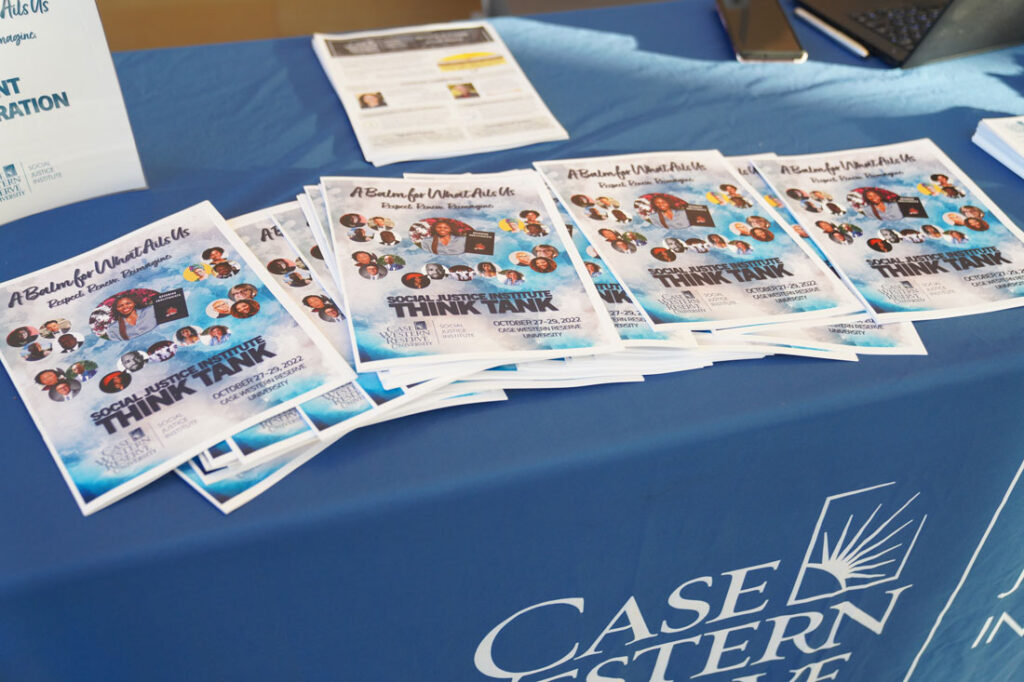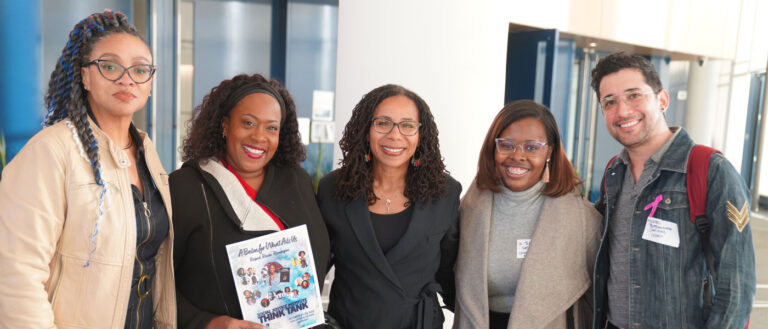When it comes to advancing social justice, Ayesha Bell Hardaway believes one component is integral to success: community involvement.
And at Case Western Reserve University, she’s putting this belief to action. Bell Hardaway serves as the director of the Social Justice Institute and the Social Justice Law Center, two programs designed to advance commitments to social justice and racial equity in order to transform the university into a more inclusive, welcoming and equitable place.
World Day of Social Justice, recognized on Feb. 20 each year, offers a unique opportunity to highlight the work of the Social Justice Law Center and Social Justice Institute. Read on to learn more from Bell Hardaway about what makes these programs at CWRU impactful.
Educating the next generation of lawyers
Under the umbrella of the School of Law, the Social Justice Law Center provides access points to students interested in exploring social justice legal work. Students currently serve as research assistants on a data project collecting and analyzing criminal felony sentences to provide some transparency to otherwise opaque processes. Their work does not stop there.
“We are also in a collaborative partnership with St. Luke’s Foundation and the Annie E. Casey Foundation exploring opportunities to support local youth and to address long standing systemic harm,” said Bell Hardaway. “This work has helped illuminate reform opportunities around the country and in Cuyahoga County.”
In addition to research projects, the center organizes fellowships, offers research and writing opportunities and sets up hands-on experiential educational opportunities. An informal advisory board made up of local legal practitioners and former jurists serve as advisors to the center, while intellectually honest and thought-provoking legal scholars focused on social justice legal issues frequently present on campus.
“Our events are extremely well attended and we work hard to make sure the entire community—both on and off campus—feels welcome in the space,” said Bell Hardaway. “We have several exciting events planned, including a screening [on Feb. 22] of ‘The Lincoln School Story,’ a documentary about a group of African American mothers who tried to enroll their children in the local white schools and the resulting court case. In April, we will host Adrien Sebro for a talk about Black visibility, creative autonomy, publicly funded media and popular education television by highlighting Maya Angelou’s ‘Blacks, Blues, Black!’”
Advancing social justice on and off campus
While the Social Justice Law Center focuses on introducing law students to work in the legal field, the Social Justice Institute invites undergraduate and graduate students to investigate social justice topics through research, discussion and community engagement.
Launched in the fall of 2010, the institute defines social justice as “the eradication of systems of power and oppression with the purpose of advancing fairness and equality through the redistribution of resources and opportunities, and exalting human dignity and respect.” The institute offers a social justice minor, scholars program and graduate student fellowship funding to further this work.
Under the Office of the Provost, the institute strives to examine the root causes of social injustice and develop innovative solutions. These solutions include supporting creative research, scholarship and pedagogy, supporting social justice leaders and forging partnerships within the university and community.

The institute also holds periodic events to highlight social justice issues in the community. In the fall, they will hold their biennial Think Tank event focused on bringing together social justice leaders across the university and the greater Cleveland community.
“From the beginning, the institute has been very community-oriented,” said Allison George, department administrator of the Social Justice Institute. “We always want community attendance and voice.”
The leadership team of the Social Justice Institute blends leaders within and beyond the campus. Made up of faculty, staff, students and community members, the committee advises the institute on the direction of future coursework, reviews research proposals and establishes future programming and events.
“My philosophy for the Social Justice Institute and Social Justice Law Center is to always make the community feel welcome in the work that we do,” said Bell Hardaway. “There is so much work to be done and I’m honored to do it with my colleagues and our brilliant students.”


